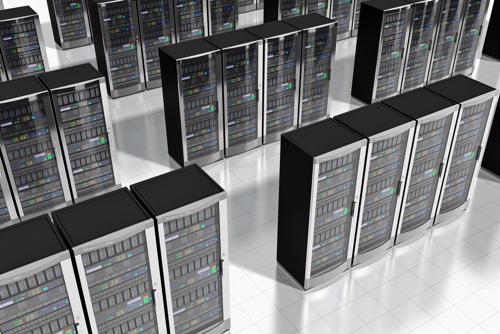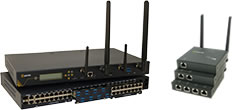
Liquid cooling applications continue to flow into the data center industry
By Donna DonnowitzJune 8, 2015
Several major industries have turned to cloud computing and big data in the past few years, driving up the demand for highly efficient data center cooling strategies. Likewise, greater utilization of data centers for scientific research has created a growing base of customers looking for denser, more manageable rackspace.
That's why it's no surprise that liquid cooling gains a bit of momentum every year, despite the fact that many experts have written the technique off off as an overly niche solution. Take another look at where liquid cooling stands today to learn how deeply the industry is immersed in this potentially market-disrupting technology.

Immersing servers eliminates the need to worry about heat aisles.
When only liquid cooling will do
There are several instances, even in desert climates where access to moisture is limited, where the only feasible option for cooling a data facility is to adopt a liquid cooling approach. Key benefits to the heat management strategy revolve around the removal of air and humidity controls from the system, as well as over five times the power density per rack via immersion or direct contact cooling.
Both perks help data facilities to reduce costs in the long run by improving reliability and eliminating waste. IT teams should include liquid cooling in cost comparisons when perusing alternate heat management strategies for a new or existing data center. An investment in liquid cooling may very well be the smartest decision an IT team can make.
Oil is still key to immersion
Oil is still the most effective and widely deployed liquid for immersion cooling, where data center components sit directly in the liquid meant to absorb heat. Mineral oils in particular are ideal because they are capable of capturing heat but are not electrically conductive. Oils used for immersion cooling are designed to be non-corrosive as well.
When it comes to direct contact liquid cooling, which involves the use of water-cooled plates as heat dumps, IT teams are allowed to get a bit more creative. According to The Data Center Journal, some big name companies like Google utilize grey water, wastewater that does not contain any human waste, to facilitate direct contact cooling. In addition to reducing costs, this approach helps resource-thirsty data centers to operate in better harmony with the surrounding community.
The future looks chill for liquid cooling
IT managers likely have big questions that need to be answered before they can decide if liquid cooling is right for their facility. This familiarity, as well as overall adoption of liquid cooling, is expected to grow, according to data collected by RnR Research. The report predicted 14 percent growth for the entire industry between 2014 and 2019. Similarly, a market report released by Technavio pointed out that increasing power consumption and subsequent energy bills pave a path directly toward greater adoption of liquid cooling.
"It's no surprise that liquid cooling gains a bit of momentum every year."
It's also likely that IT managers will be more apt to adopt liquid for heat management in the data center as they come up with new ways to take full advantage of the technology. For instance, a company can eliminate extra data centers by increasing the density of the racks housed at their primary facility, then managing the extra load with liquid cooling.
Employees that once depended on outlet data centers can now be connected to the main facility via remote console servers. This centralized approach will help companies to cut the cost of maintaining multiple buildings as well. Those who think outside the box of traditional data center architecture will also generate the greatest savings.
Perle's wide range of 1 to 48 port Perle Console Servers provide data center managers and network administrators with secure remote management of any device with a serial console port. Plus, they are the only truly fault tolerant Console Servers on the market with the advanced security functionality needed to easily perform secure remote data center management and out-of-band management of IT assets from anywhere in the world.



